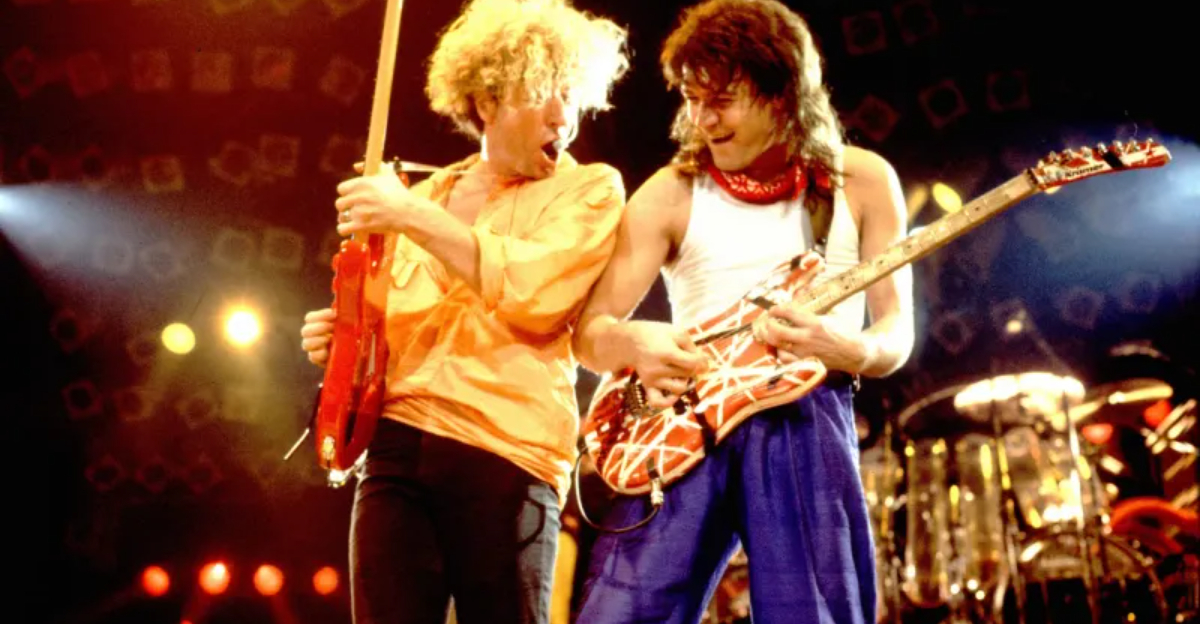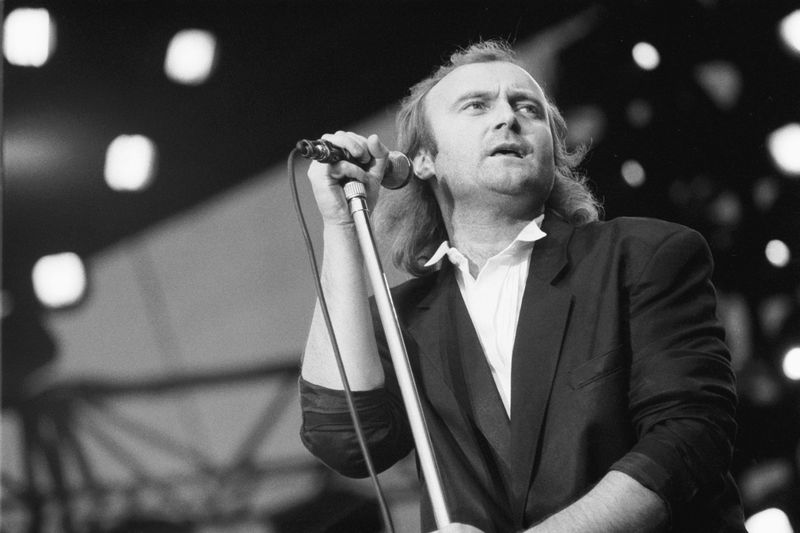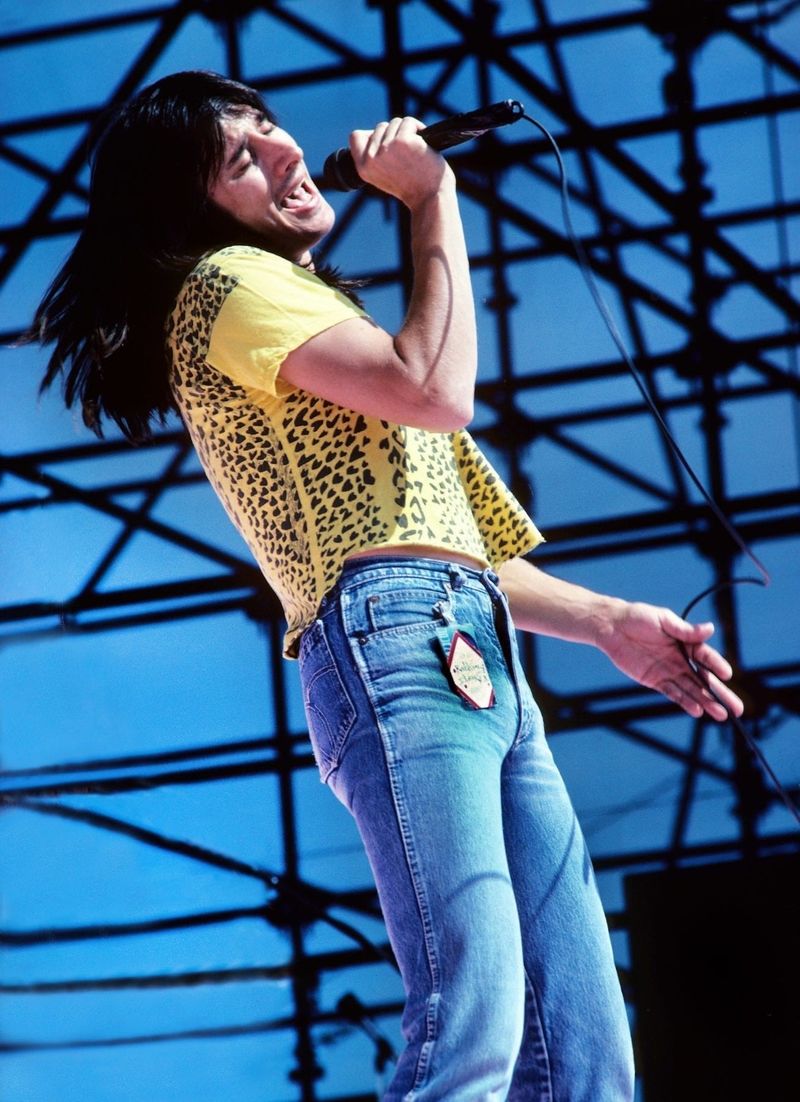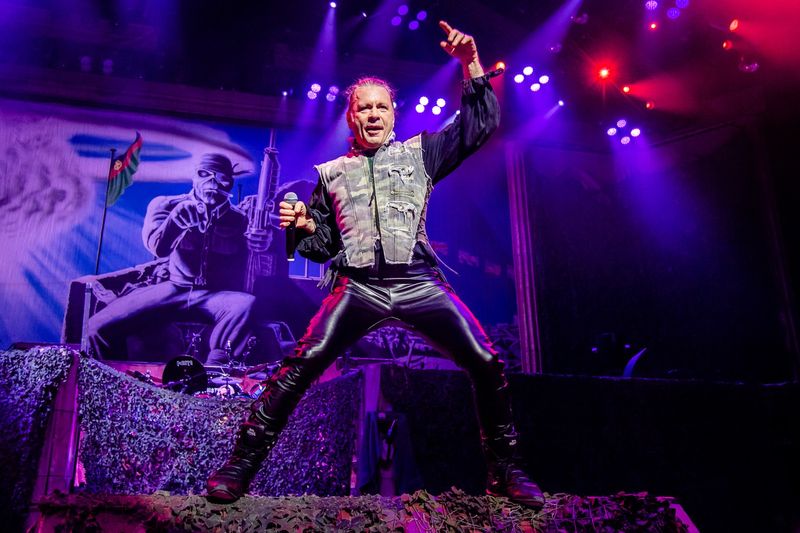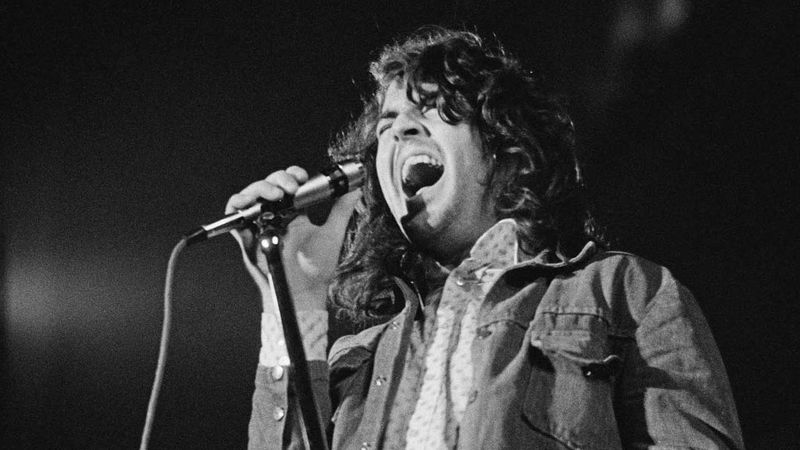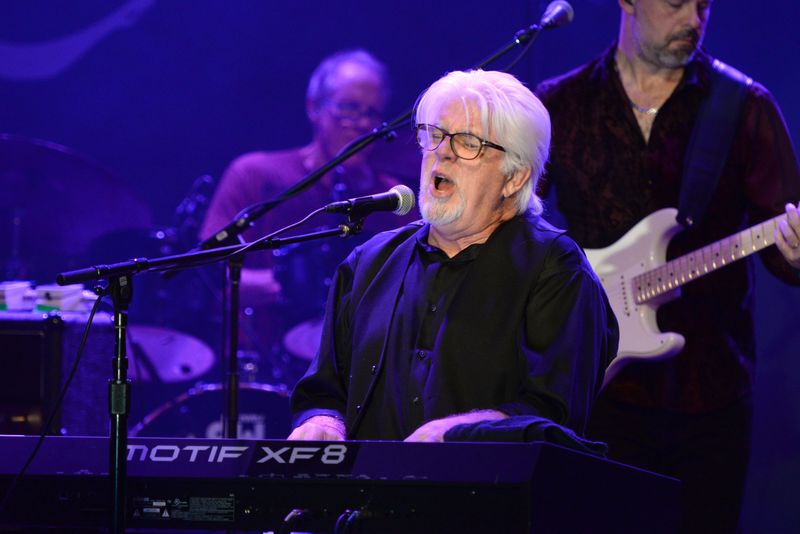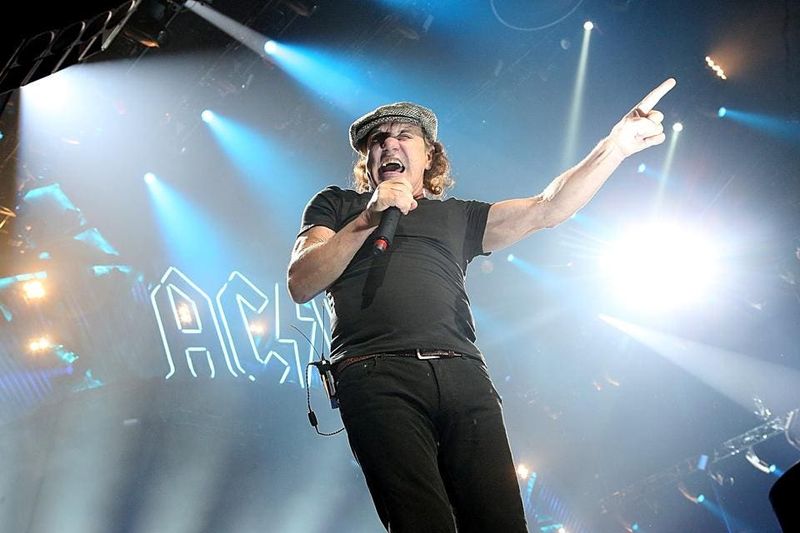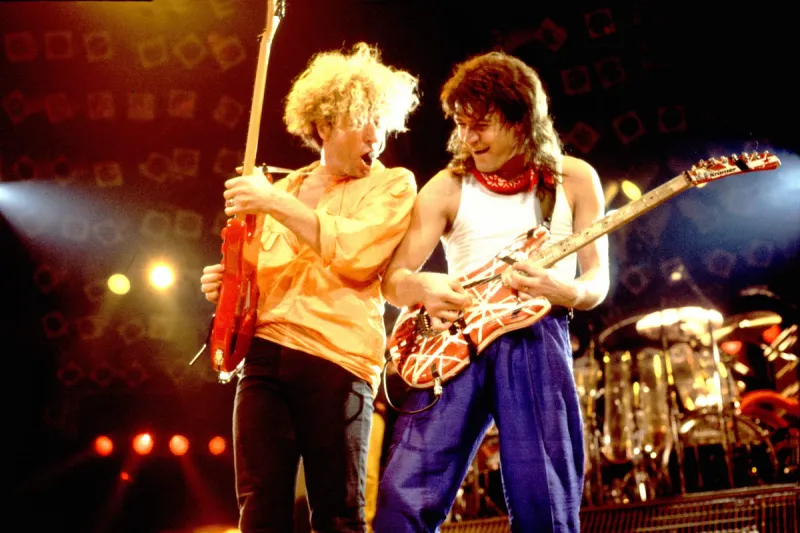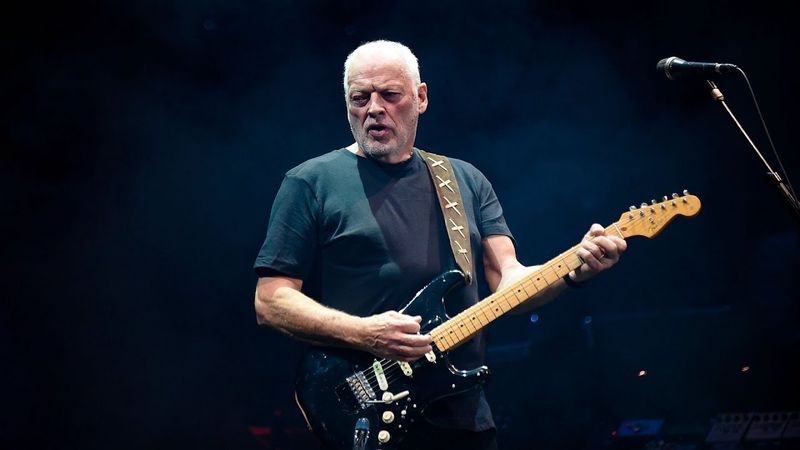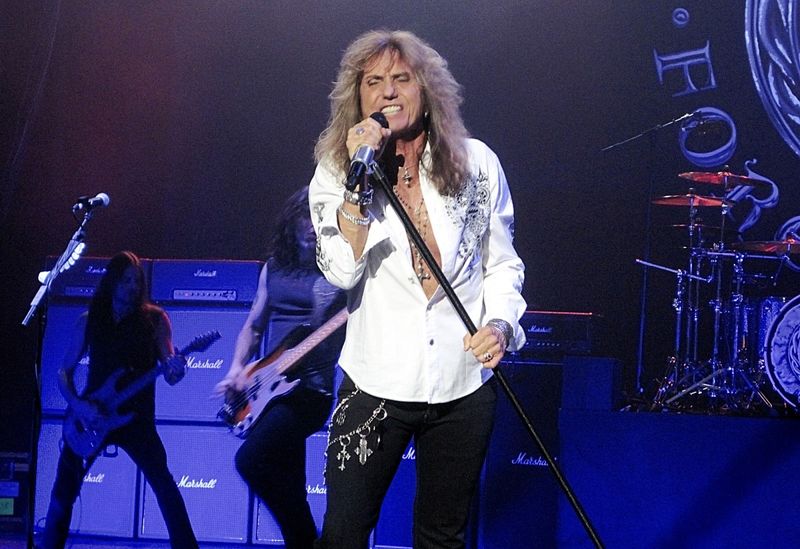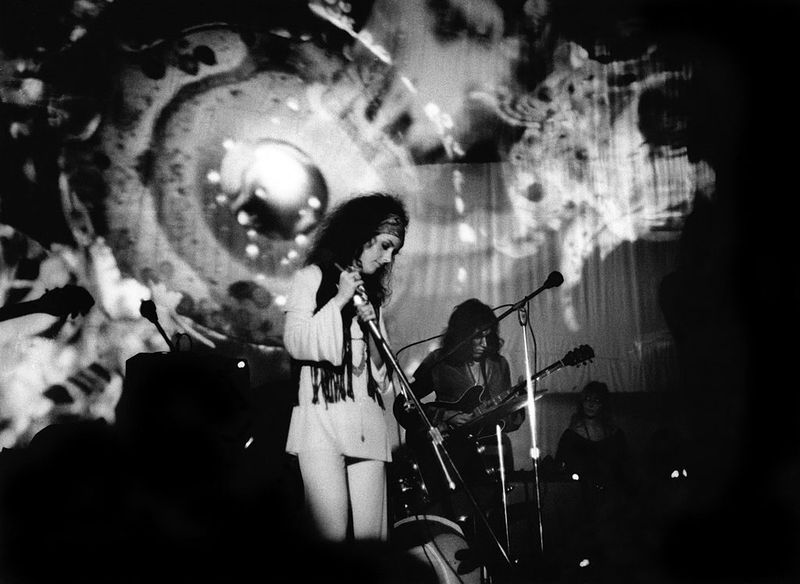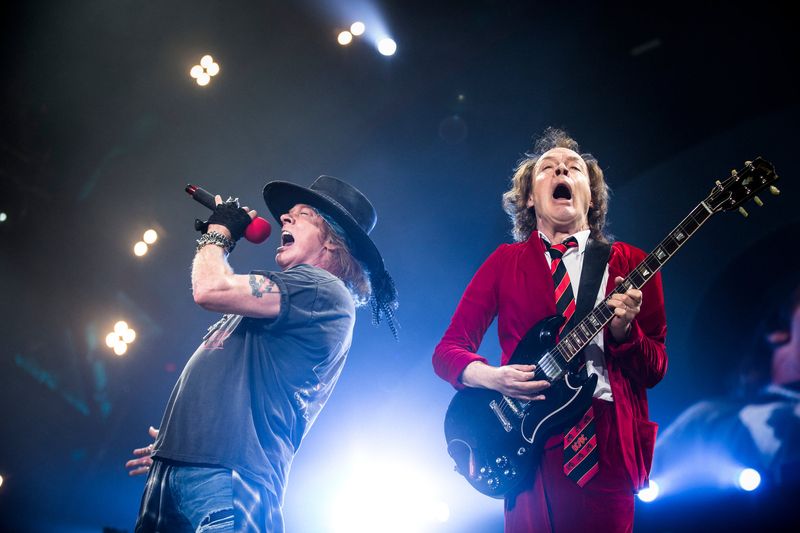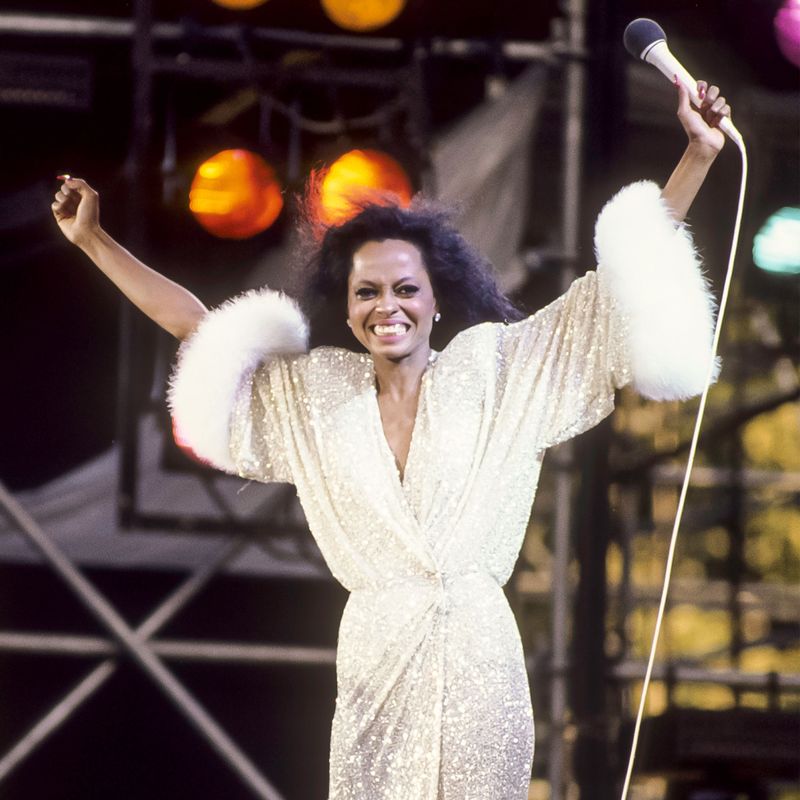In the world of classic rock, few stories captivate audiences like those of replacement vocalists who not only stepped into the shoes of legendary frontmen but also led their bands to even greater heights.
These singers redefined their bands’ sound, broadened their appeal, and often became icons in their own right. This blog explores 12 such vocalists who surpassed their predecessors in fame and success.
1. Phil Collins (Genesis)
Phil Collins was not just a drummer but a transformative force when he took over as Genesis’ lead vocalist in 1975, replacing Peter Gabriel. With his boyish charm and distinct voice, Collins guided Genesis from the niche of prog-rock to mainstream success. Their sound evolved into something more commercially appealing, with hits like “Invisible Touch” making waves globally.
Collins didn’t stop there. His solo career took off, making him one of the ’80s’ best-selling artists. His work brought an emotional depth that resonated widely, helping Genesis achieve multi-platinum success.
2. Steve Perry (Journey)
When Steve Perry joined Journey in 1977, he brought a vocal dynamism that revolutionized the band’s sound. His powerful voice and emotive delivery turned songs like “Don’t Stop Believin’” into anthems that still resonate today. Under Perry’s leadership, Journey achieved monumental commercial success, selling millions of albums.
Perry’s presence was magnetic, drawing fans with soaring vocals and heartfelt lyrics. His ability to connect with audiences on an emotional level helped Journey redefine rock ballads, securing their place in the pantheon of classic rock legends.
3. Bruce Dickinson (Iron Maiden)
Bruce Dickinson didn’t just replace Paul Di’Anno in Iron Maiden; he propelled the band into a new era of heavy metal greatness. Joining in 1981, Dickinson’s operatic vocal style and dynamic stage presence became the gold standard for metal frontmen.
With albums like ‘The Number of the Beast’ and ‘Powerslave,’ Dickinson helped craft some of the most critically acclaimed works in the genre. His influence on Iron Maiden’s identity was profound, making them not only successful but iconic in the metal community.
4. Ian Gillan (Deep Purple)
Ian Gillan’s induction into Deep Purple in 1969 marked a turning point, elevating the band’s sound to new heights. His distinctive voice breathed life into classics like “Smoke on the Water,” a track that immortalized the band in rock history.
Gillan’s vocal prowess and theatrical flair on stage captivated audiences worldwide, helping Deep Purple achieve legendary status. The album ‘Machine Head’ became a benchmark for rock music, with Gillan’s contribution being indispensable to its success.
5. Michael McDonald (The Doobie Brothers)
Michael McDonald joined The Doobie Brothers in 1975, replacing Tom Johnston and bringing a soulful edge that transformed the band’s sound. His rich, husky vocals on hits like “What a Fool Believes” helped them cross over to mainstream success, earning Grammy Awards and broadening their appeal.
McDonald’s influence was immediate and profound, turning The Doobie Brothers into a staple of the soft rock genre. His ability to blend soul with pop-rock elements made his era with the band unforgettable.
6. Brian Johnson (AC/DC)
After Bon Scott’s untimely death in 1980, Brian Johnson was the powerhouse voice AC/DC needed. His gritty vocals on ‘Back in Black’ catapulted the band to unprecedented success, with the album becoming the second-best-selling of all time.
Johnson brought a raw, electrifying energy that revitalized AC/DC’s sound, ensuring their legacy as rock titans. His stage presence and vocal intensity were unmatched, securing his place in rock history.
7. Sammy Hagar (Van Halen)
Stepping into the spotlight in 1985, Sammy Hagar took over from David Lee Roth and led Van Halen into a new era of success. Known for his powerful voice and exuberant stage presence, Hagar helped the band achieve three No. 1 albums, including the hit-laden ‘5150.’
Hagar’s tenure refreshed Van Halen’s sound, appealing to a broader audience and bringing a new dynamism that propelled them into the rock stratosphere. His ability to connect with fans added a new dimension to the band’s live performances.
8. David Gilmour (Pink Floyd)
David Gilmour took the reins as Pink Floyd’s lead vocalist after Syd Barrett’s departure, steering the band toward monumental success. His soulful guitar work and haunting vocals became synonymous with albums like ‘Dark Side of the Moon’ and ‘The Wall.’
Gilmour’s contributions were pivotal in crafting the band’s iconic soundscapes that captivated millions. His era with Pink Floyd is marked by artistry and innovation, cementing their status as pioneers in progressive rock.
9. David Coverdale (Deep Purple → Whitesnake)
David Coverdale’s journey from Deep Purple to founding Whitesnake marked him as a true rock legend. Taking over from Ian Gillan in 1973, Coverdale injected a bluesy intensity into Deep Purple’s music before launching Whitesnake.
Whitesnake’s 1987 self-titled album became a global sensation, selling over 10 million copies. Coverdale’s powerful vocals and charismatic stage presence made him a standout figure, eclipsing the success of his previous band’s lineup.
10. Grace Slick (Jefferson Airplane → Jefferson Starship)
Grace Slick’s entry into Jefferson Airplane in 1966 took the band to psychedelic-rock stardom. Her commanding voice on tracks like “Somebody to Love” and “White Rabbit” became anthems of the era, defining a generation.
Transitioning to Jefferson Starship, Slick helped the band achieve mainstream success in the ’80s, showcasing her versatility and enduring appeal. Her dynamic performances and distinctive style left an indelible mark on rock history.
11. Axl Rose (Guns N’ Roses → AC/DC)
Axl Rose’s surprising role as AC/DC’s frontman for their 2016-17 tour showcased his ability to fill legendary shoes. Replacing Brian Johnson, Rose brought his superstar charisma and powerful vocals to the stage, keeping arenas sold out worldwide.
His involvement introduced AC/DC to a new generation, demonstrating his versatility and broad appeal. Rose’s impact during this period was undeniable, helping maintain the band’s iconic status.
12. Diana Ross (The Supremes → Solo)
Diana Ross’s transition from The Supremes to a solo career was a move of sheer brilliance. After taking over lead vocals in 1967, her star power only grew, leading to a solo career that produced 18 top-10 hits.
Ross’s voice, charisma, and stage presence made her one of music’s best-selling female artists. Her impact on pop and soul music is timeless, symbolizing success and elegance.
